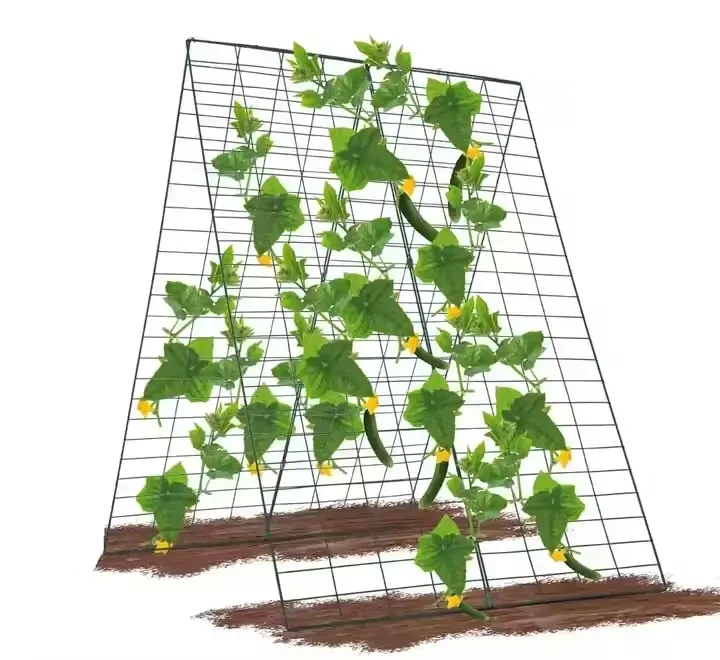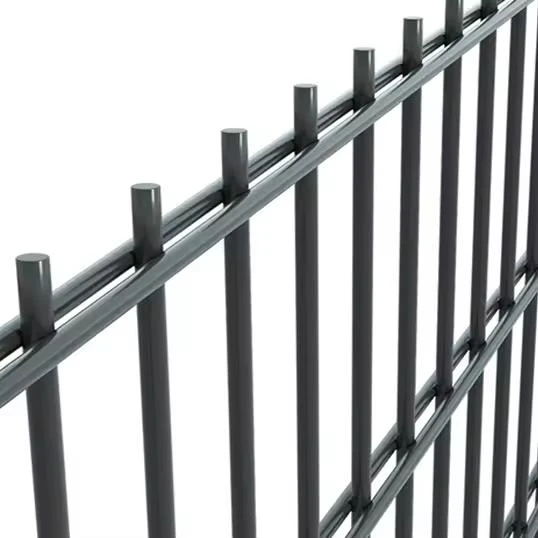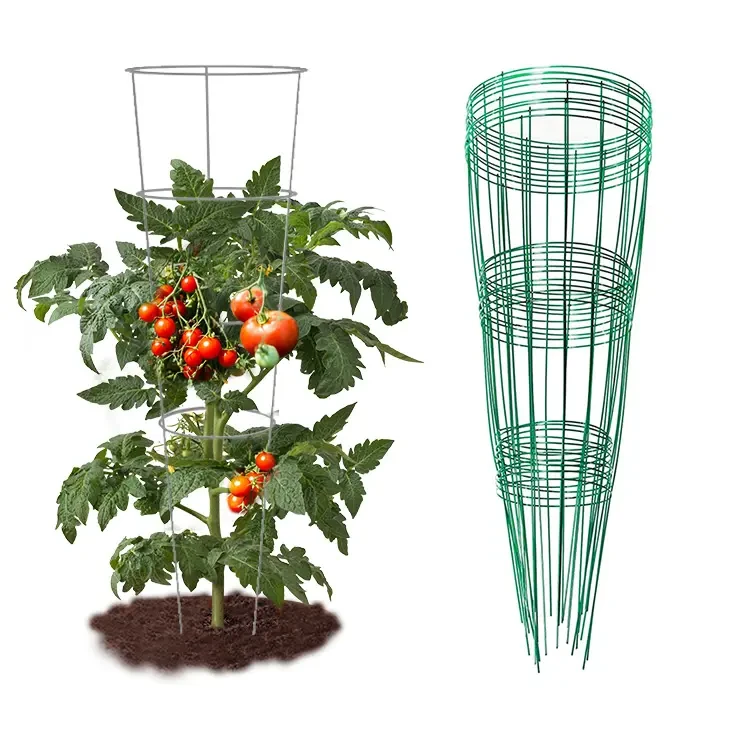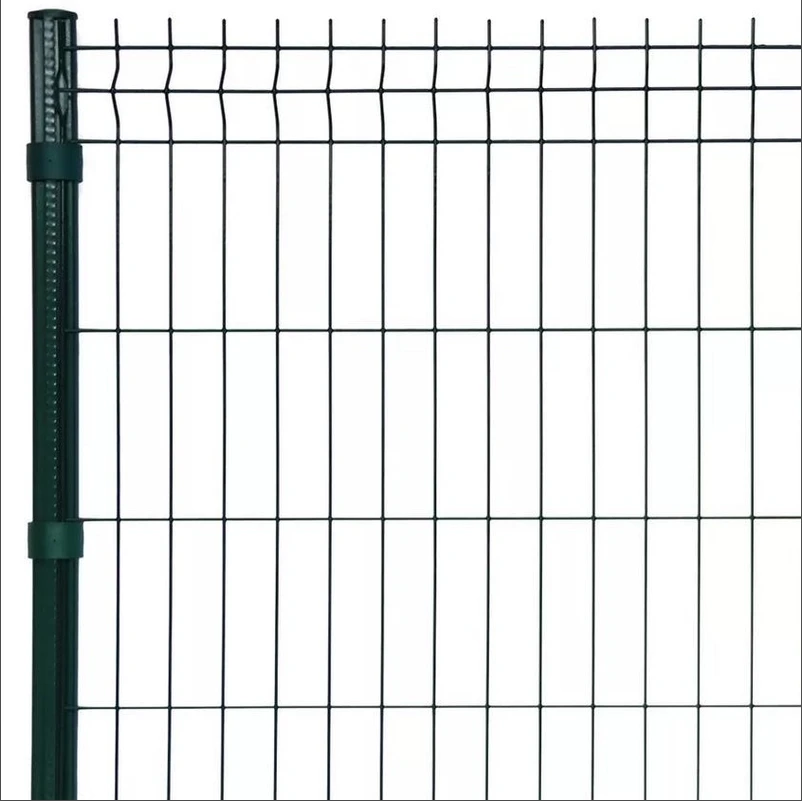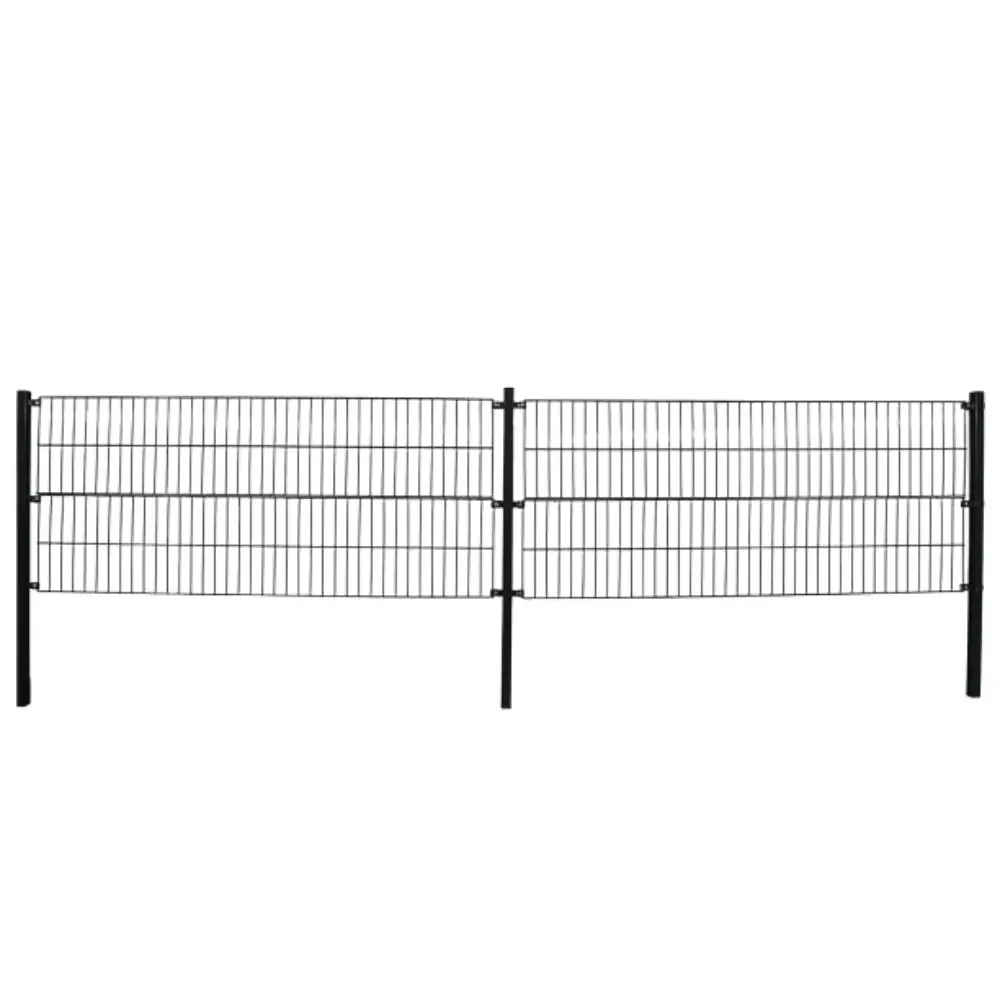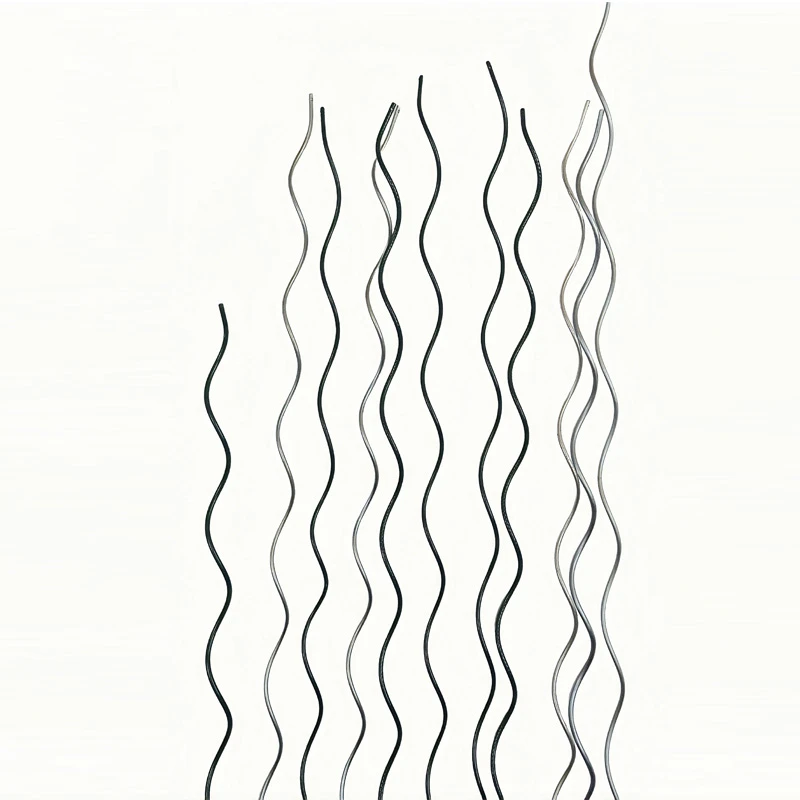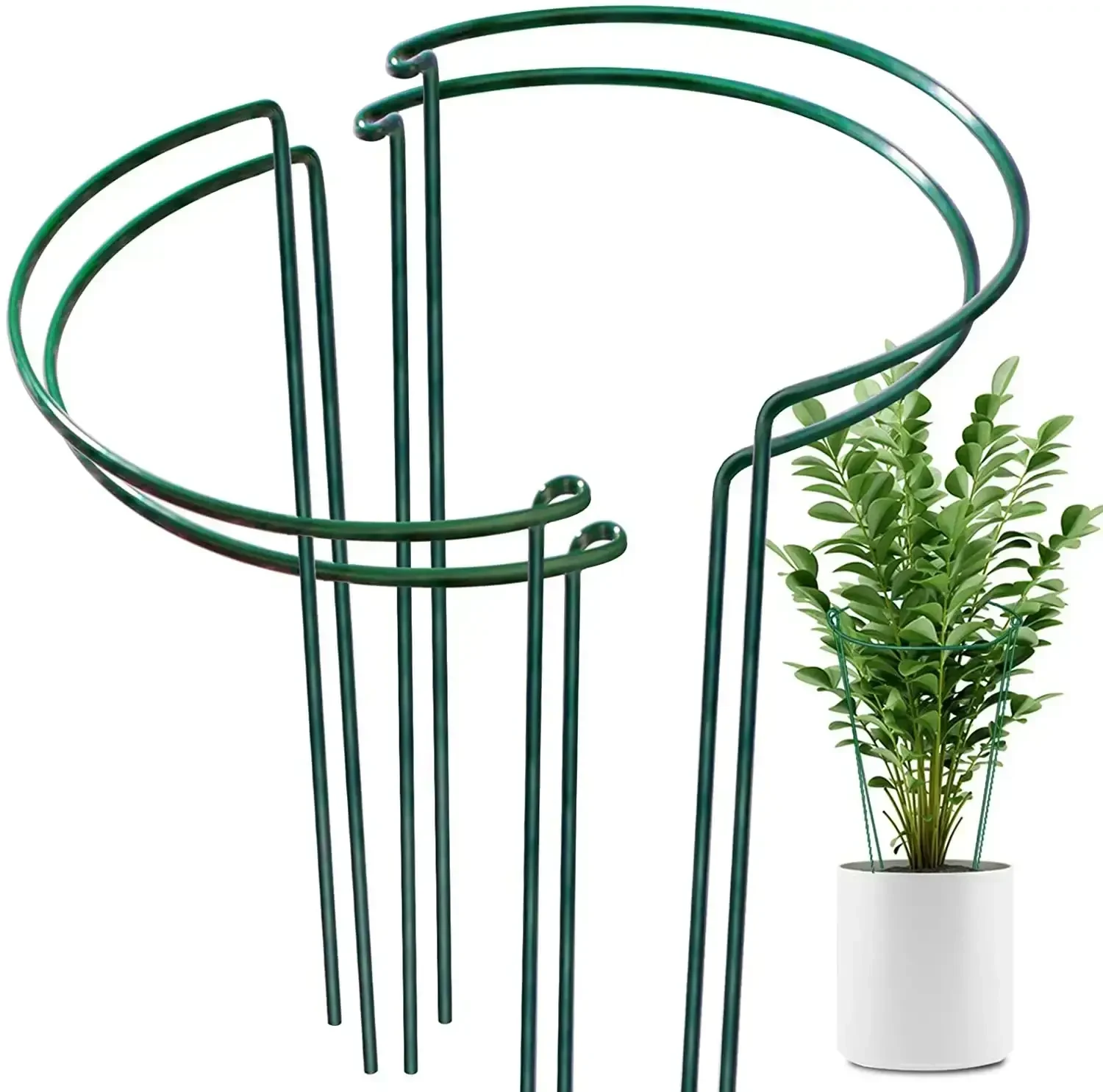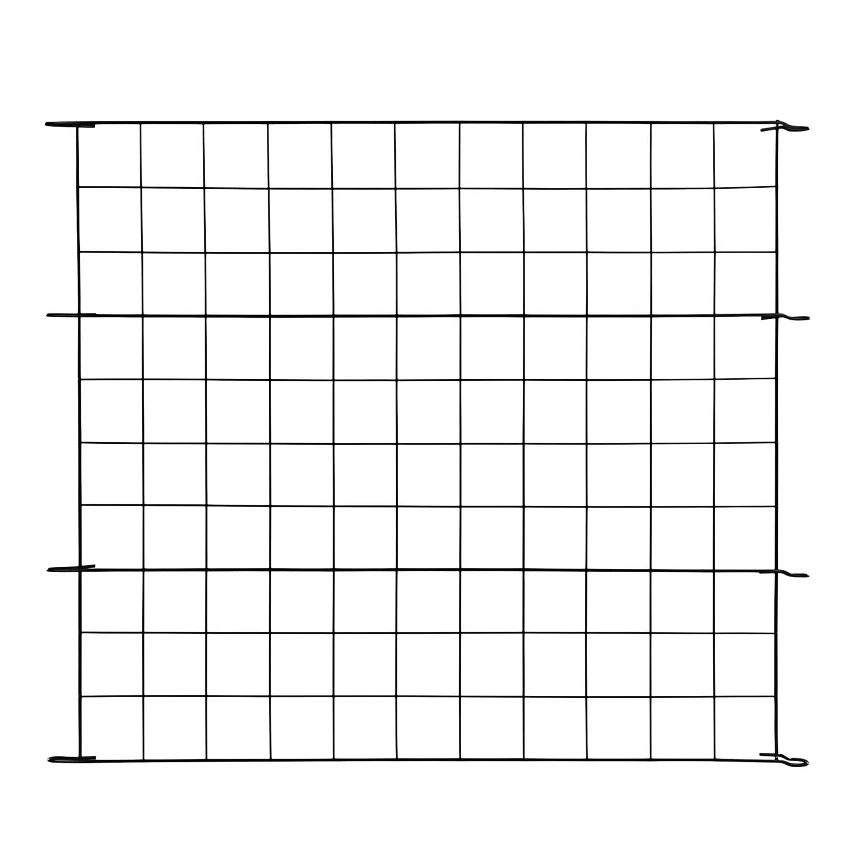-

-
 Whatsapp:+86 17732187393
Whatsapp:+86 17732187393 -


- Afrikaans
- Albanian
- Amharic
- Arabic
- Armenian
- Azerbaijani
- Basque
- Belarusian
- Bengali
- Bosnian
- Bulgarian
- Catalan
- Cebuano
- Corsican
- Croatian
- Czech
- Danish
- Dutch
- English
- Esperanto
- Estonian
- Finnish
- French
- Frisian
- Galician
- Georgian
- German
- Greek
- Gujarati
- haitian_creole
- hausa
- hawaiian
- Hebrew
- Hindi
- Miao
- Hungarian
- Icelandic
- igbo
- Indonesian
- irish
- Italian
- Japanese
- Javanese
- Kannada
- kazakh
- Khmer
- Rwandese
- Korean
- Kurdish
- Kyrgyz
- Lao
- Latin
- Latvian
- Lithuanian
- Luxembourgish
- Macedonian
- Malgashi
- Malay
- Malayalam
- Maltese
- Maori
- Marathi
- Mongolian
- Myanmar
- Nepali
- Norwegian
- Norwegian
- Occitan
- Pashto
- Persian
- Polish
- Portuguese
- Punjabi
- Romanian
- Russian
- Samoan
- scottish-gaelic
- Serbian
- Sesotho
- Shona
- Sindhi
- Sinhala
- Slovak
- Slovenian
- Somali
- Spanish
- Sundanese
- Swahili
- Swedish
- Tagalog
- Tajik
- Tamil
- Tatar
- Telugu
- Thai
- Turkish
- Turkmen
- Ukrainian
- Urdu
- Uighur
- Uzbek
- Vietnamese
- Welsh
- Bantu
- Yiddish
- Yoruba
- Zulu
Circular Plant Supports: Sturdy Iron & Half-Circle Designs
Introduction to Circular Plant Supports in B2B Horticulture
In the rapidly evolving landscape of commercial horticulture, landscape architecture, and large-scale agricultural operations, the demand for robust and efficient plant management solutions is paramount. Among these, circular plant supports stand out as an indispensable tool for maintaining plant health, optimizing growth patterns, and enhancing aesthetic appeal. These engineered solutions are crucial for growers, municipalities, and land developers who require superior structural integrity and longevity for their botanical investments. This article delves into the technical aspects, market trends, and practical applications of these vital horticultural components, targeting B2B decision-makers and technical personnel.
Our discussion will cover the advanced manufacturing processes, material science, and diverse application scenarios that define the utility of these supports. We will explore how high-quality supports contribute to sustainable practices and operational efficiency in various professional settings, from expansive commercial nurseries to intricate urban greening projects. Understanding the nuances of their design and construction is key to selecting the optimal solutions that ensure plant vitality and long-term project success.
Industry Trends & Market Dynamics for Plant Support Systems
The B2B market for plant support systems is experiencing significant growth, driven by several macro trends. The global shift towards sustainable agriculture, increased investment in urban green infrastructure, and the expansion of controlled environment agriculture (CEA), including vertical farming and greenhouses, are creating robust demand. Clients require solutions that are not only durable but also scalable, aesthetically pleasing, and easy to deploy. The emphasis is increasingly on products that offer extended service life, minimal maintenance, and adaptability to diverse plant species and growing environments.
Technological advancements in material science and manufacturing processes are leading to the development of superior circular plant supports. Innovations in corrosion-resistant coatings, lightweight yet strong alloys, and modular designs are setting new industry standards. There is a rising preference for `iron plant supports` and galvanized steel options due to their exceptional durability and resistance to environmental degradation. Furthermore, specialized designs like `half circle plant supports` and `half moon plant supports` are gaining traction for targeted support of individual plants or specific sections of garden beds, offering flexibility and precision in plant care.
The market also shows a strong trend towards customized solutions, where standard `plant cages and supports` are adapted to meet unique project specifications, ranging from specific heights and diameters to custom color coatings for aesthetic integration. This bespoke approach allows B2B clients to achieve optimal results for high-value crops or prestigious landscape installations, ensuring that every plant receives the exact support it needs to thrive.
Technical Specifications & Material Science of Circular Plant Supports
The performance of circular plant supports hinges on meticulous material selection and adherence to stringent technical specifications. Key materials typically include high-grade steel wire, often galvanized, and powder-coated iron, chosen for their strength, rigidity, and resistance to environmental factors.
Material Options:
- Galvanized Steel: Offers excellent corrosion resistance due to a zinc coating applied through hot-dip galvanization or electro-galvanization. This process creates a metallurgical bond, providing a robust barrier against rust and abrasion, critical for `garden plant support stakes` exposed to outdoor elements.
- Powder-Coated Iron: Provides a durable, aesthetic finish. The powder coating process involves applying dry powder through electrostatic attraction, then curing it under heat to form a hard layer. This enhances resistance to UV radiation, chipping, and fading, making it ideal for `flower supports plant stakes` in visible commercial landscaping.
- Stainless Steel: Used for high-end applications requiring superior corrosion resistance, particularly in coastal or chemically aggressive environments, albeit at a higher cost.
Structural Designs:
- Full Circle Designs: Encapsulate the plant entirely, providing all-around support. Available in various diameters and heights.
- Half Circle/Half Moon Designs: Ideal for supporting plants against walls, borders, or for sequential support as plants grow. Their open design allows for easy placement and adjustment.
- Stackable/Interlocking Units: Offer modularity, allowing for flexible height adjustments and customized configurations to accommodate varying plant sizes and growth stages.
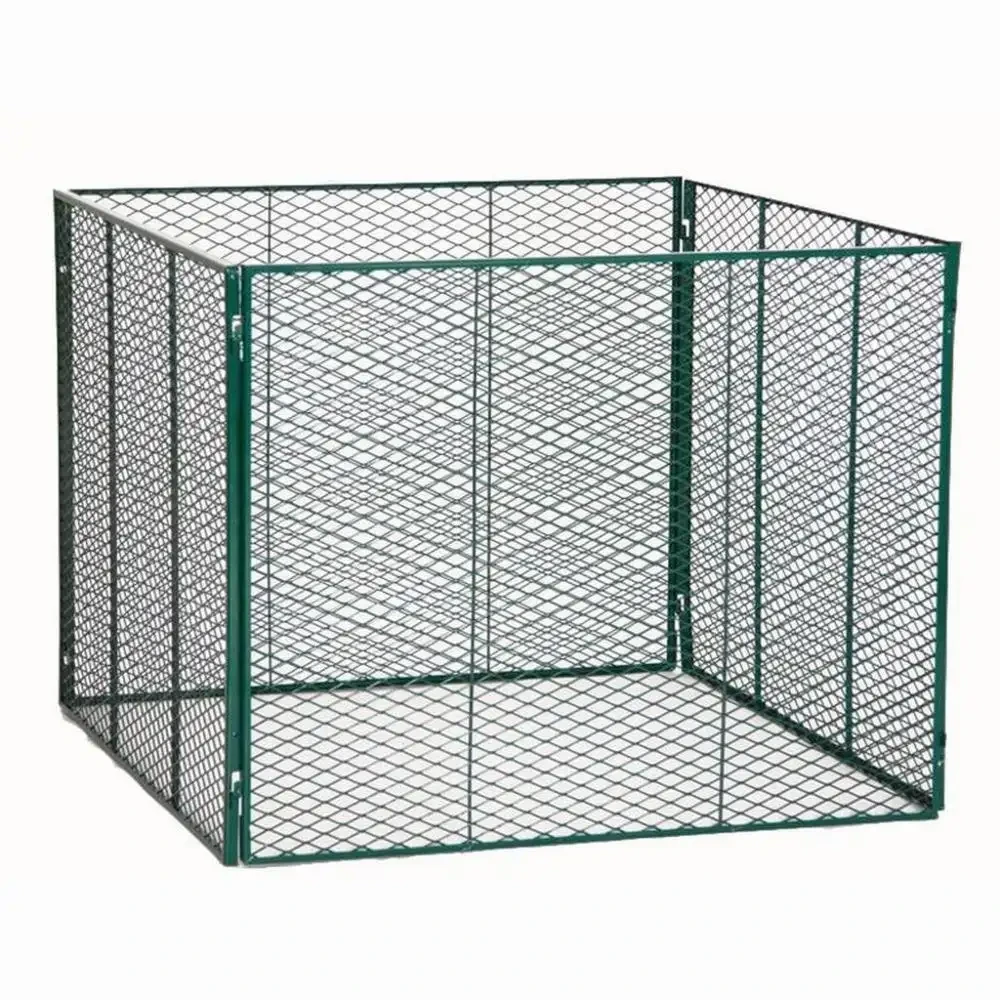
Key Product Specifications Table:
| Parameter | Typical Specification | Notes for B2B Clients |
|---|---|---|
| Material Type | Galvanized Steel (Q195/Q235), Powder-Coated Steel/Iron | Choose based on corrosion resistance needs and budget. |
| Wire Diameter/Rod Gauge | 3mm to 8mm (0.12" to 0.31") | Thicker gauges for heavier plants and higher wind loads. |
| Height Range | 30cm to 150cm (12" to 59") standard; custom heights available | Match to mature plant height, considering stem rigidity. |
| Diameter/Width Range | 20cm to 60cm (8" to 24") standard; custom widths available | Accommodate plant spread without constricting growth. |
| Coating Thickness | Zinc: 60-80 microns (Hot-dip); Powder: 60-120 microns | Directly impacts corrosion resistance and longevity. |
| Color Options | Green, Black, Brown, Custom RAL colors | For aesthetic integration into specific landscape designs. |
Understanding these technical details is critical for procurers and project managers to specify circular plant supports that meet performance expectations and budget constraints, ensuring optimal plant development and investment protection.
Manufacturing Process of High-Quality Circular Plant Supports
The production of high-quality circular plant supports involves a series of precision engineering and material treatment steps designed to ensure durability, strength, and aesthetic appeal. Our manufacturing process adheres to stringent quality control standards, including ISO 9001, to deliver products suitable for demanding B2B applications.
Process Flow Overview:
1. Raw Material Sourcing
High-grade steel wire or iron rods (e.g., Q195, Q235) procured from certified suppliers. Materials undergo initial inspection for composition and integrity.
2. Precision Forming & Shaping
Utilizing advanced CNC bending machines, wire/rods are precisely shaped into half-circle, full-circle, or other desired configurations. Robotic welding ensures strong, consistent joints for `plant cages and supports`.
3. Surface Treatment
Pre-treatment: Degreasing, rinsing, phosphating for optimal coating adhesion. Galvanization: Hot-dip or electro-galvanization for superior corrosion protection. Powder Coating: Electrostatic application of high-quality polyester or epoxy powders, followed by curing at high temperatures (e.g., 200°C) for a durable finish.
4. Quality Control & Testing
Each batch undergoes rigorous testing: tensile strength, weld integrity, coating thickness (adherence to ISO 2808), salt spray corrosion resistance (ASTM B117, minimum 500-1000 hours), and visual inspection for defects. Compliance with ANSI standards for structural integrity.
5. Packaging & Logistics
Products are securely packaged to prevent damage during transit. Efficient logistics ensure timely delivery to global B2B clients, meeting lead time commitments.
This meticulous process ensures that our circular plant supports achieve an extended service life, typically ranging from 5 to 15 years depending on material and environment, far exceeding the lifespan of untreated alternatives. Our target industries benefit from these advantages, particularly those demanding high reliability, such as municipal landscaping, botanical garden maintenance, and large-scale commercial farming, where energy saving through reduced replacement cycles and superior corrosion resistance are critical.
Application Scenarios & Case Studies
The versatility and robust construction of circular plant supports make them indispensable across a wide spectrum of B2B applications. They are critical for managing plant growth, ensuring structural integrity, and enhancing the overall visual appeal in professional horticultural environments.
Typical Application Environments:
- Commercial Nurseries & Greenhouses: Supporting high-value ornamental plants, fruit-bearing shrubs, and young trees to promote vertical growth and prevent damage from wind or heavy fruit loads. `Half circle plant supports` are especially useful for guiding vines and maintaining canopy shape.
- Municipal Parks & Public Gardens: Providing discreet yet strong support for perennial borders, large flowering plants, and specimen shrubs, ensuring public safety and aesthetic consistency. `Flower supports plant stakes` help maintain upright growth for vibrant displays.
- Viticulture & Orchard Management: Structuring grapevines and young fruit trees to optimize sun exposure, airflow, and facilitate harvesting, leading to improved yields and plant health.
- Landscape Architecture & Urban Development: Integrating functional support systems into complex design projects, from rooftop gardens to street-side planters, often requiring custom designs for unique plant forms.
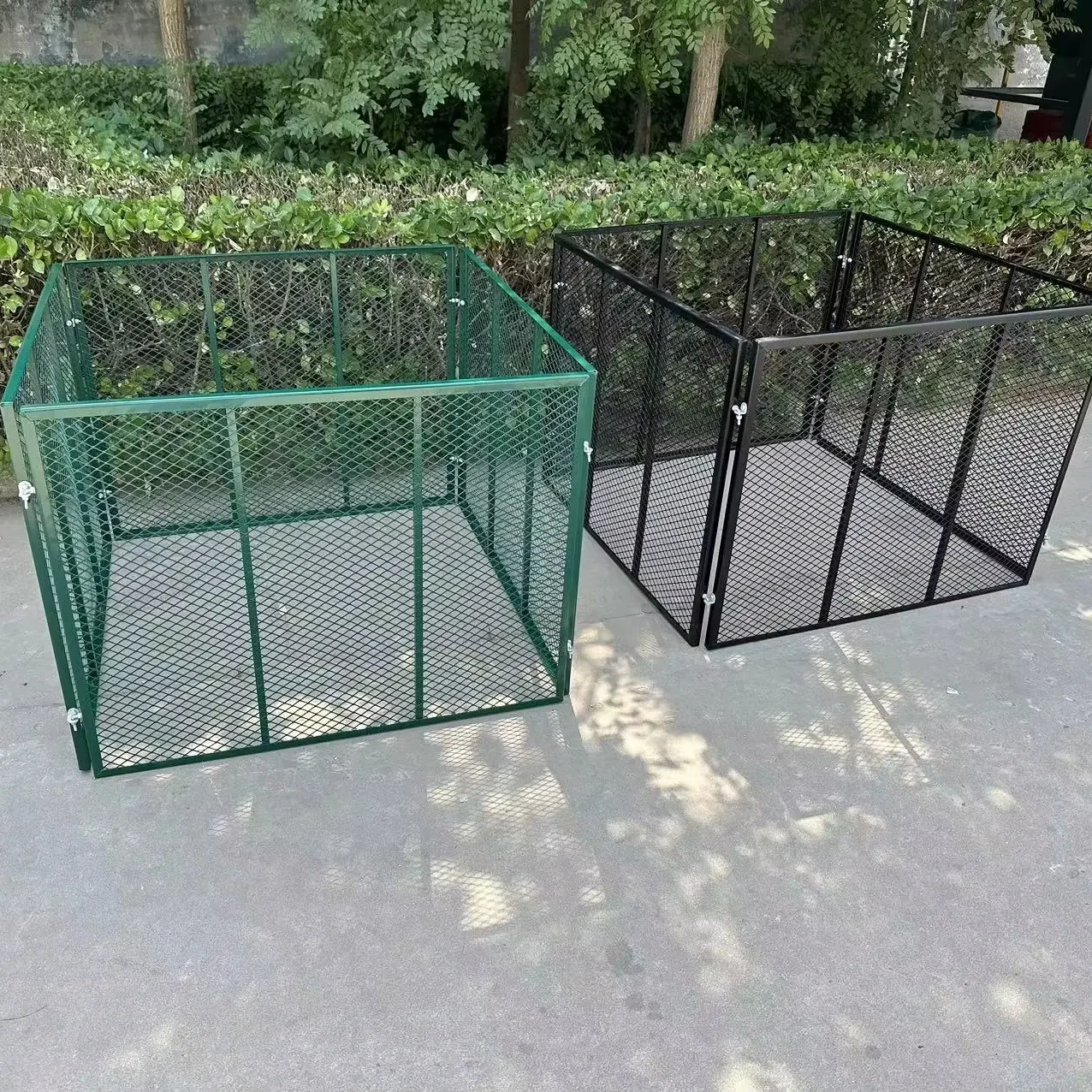
Application Case Studies:
Case Study 1: Large-Scale Commercial Rose Nursery
Client: "BloomMaster Nurseries," a leading commercial rose grower in the Pacific Northwest.
Challenge: Maintaining the upright, unblemished growth of thousands of delicate rose varieties, particularly during peak blooming season and windy conditions. Traditional staking was labor-intensive and often damaged stems.
Solution: Implementation of modular, galvanized circular plant supports with a 45cm diameter and 75cm height. The supports were strategically placed early in the growth cycle, providing gentle yet firm encirclement.
Results: A 30% reduction in stem breakage and bending, a 15% increase in marketable rose stems due to improved quality, and a significant reduction in labor costs for plant training and repair. The galvanized finish ensured a projected 10+ year service life in the humid greenhouse environment, demonstrating the long-term value of durable `iron plant supports`.
Case Study 2: Urban Greening Project – City of Metropolis Botanical Garden
Client: Metropolis Parks and Recreation Department for their new "Vertical Bloom" exhibition.
Challenge: Supporting various tall, herbaceous perennials and climbing plants in highly visible public displays while blending seamlessly with the garden's modern aesthetic. Durability against vandalism and weather was critical.
Solution: Custom-designed `half moon plant supports` and stackable `plant cages and supports` constructed from powder-coated steel (RAL 6005 Moss Green) were installed. The modular design allowed for tailored heights for diverse plant species.
Results: The plants maintained pristine form throughout the exhibition, significantly enhancing public engagement and positive feedback. The powder coating proved highly resistant to chipping and UV fading, maintaining its aesthetic integrity for multiple seasons. The robust construction minimized maintenance and replacement needs, showcasing the long-term benefit of specialized `garden plant support stakes`.
Technical Advantages & Performance Metrics
The strategic implementation of high-quality circular plant supports yields significant technical advantages for B2B operations, directly impacting plant health, operational efficiency, and return on investment. These benefits stem from superior material science, precise engineering, and thoughtful design.
Key Advantages:
- Enhanced Plant Health & Yield: By preventing lodging (falling over), bending, and stem breakage, supports ensure plants receive optimal sunlight and airflow, reducing disease susceptibility and maximizing photosynthetic efficiency. This translates directly to higher yields and superior quality produce or blooms for `flower supports plant stakes`.
- Superior Durability & Longevity: Advanced surface treatments such as hot-dip galvanization and high-performance powder coating provide exceptional resistance to corrosion, UV degradation, and mechanical abrasion. This extends the service life of products like `iron plant supports` to 10-15 years, significantly reducing replacement costs and environmental impact.
- Ease of Installation & Adjustability: Ergonomic designs and often modular construction allow for quick, tool-free installation and easy adjustment as plants grow. This minimizes labor costs and disruption to plant environments, crucial for managing extensive plant inventories.
- Optimal Space Utilization: Vertical growth facilitated by circular plant supports allows for denser planting, maximizing the use of valuable greenhouse or garden space, particularly beneficial in urban horticulture and CEA systems.
- Aesthetic Integration: Available in various colors (e.g., green, black, brown) and subtle designs, these supports can blend seamlessly into the landscape, maintaining the visual integrity of commercial and public green spaces. `Half moon plant supports` offer discrete support when only partial encirclement is needed.
- Cost-Effectiveness Over Lifecycle: While initial investment might be higher than flimsy alternatives, the extended durability, reduced maintenance, and improved plant output result in a significantly lower total cost of ownership over the product's lifespan.
Performance Metrics (Example Data):
- Corrosion Resistance: Salt spray test (ASTM B117) results typically exceed 1000 hours for hot-dip galvanized and premium powder-coated products, showing no red rust.
- Load Bearing Capacity: Depending on wire gauge and design, individual supports can safely bear loads from 5 kg to 25 kg, accommodating heavy fruit loads or dense foliage.
- UV Stability: Powder coatings are tested for color retention and structural integrity after extensive UV exposure, ensuring minimal fading or degradation over time (e.g., QUV accelerated weathering for 2000 hours).
These measurable performance attributes underscore the technical superiority and economic benefits that professional-grade circular plant supports bring to B2B clients, ensuring reliable performance in demanding horticultural applications.
Vendor Comparison & Selection Criteria
Selecting the right vendor for circular plant supports is a critical decision for B2B buyers, impacting project success, budget, and long-term operational efficiency. A thorough evaluation based on key criteria is essential to ensure that the chosen products meet specific technical and performance requirements.
Key Selection Criteria:
- Material Quality & Certification: Verify the use of high-grade, certified materials (e.g., steel grades, zinc purity). Look for suppliers with ISO 9001 certification for quality management.
- Manufacturing Precision & Consistency: Assess the vendor's manufacturing capabilities, including CNC automation and welding quality. Inconsistent manufacturing leads to premature failure.
- Surface Treatment Standards: Inquire about galvanization thickness (e.g., ASTM A123/A153 for hot-dip) and powder coating specifications (e.g., adhesion, impact resistance, UV stability). This is vital for `iron plant supports` longevity.
- Customization Capabilities: For unique projects, the ability to produce custom heights, diameters, colors, and designs (e.g., specialized `half circle plant supports`) is invaluable.
- Lead Time & Fulfillment: Reliable production capacity and efficient logistics are crucial for meeting project timelines, especially for large orders of `plant cages and supports`.
- Warranty & After-Sales Support: A clear warranty policy and responsive customer service indicate a vendor's confidence in their product and commitment to client satisfaction.
- Technical Support & Expertise: Vendors who offer technical guidance on product selection, installation, and maintenance can add significant value.
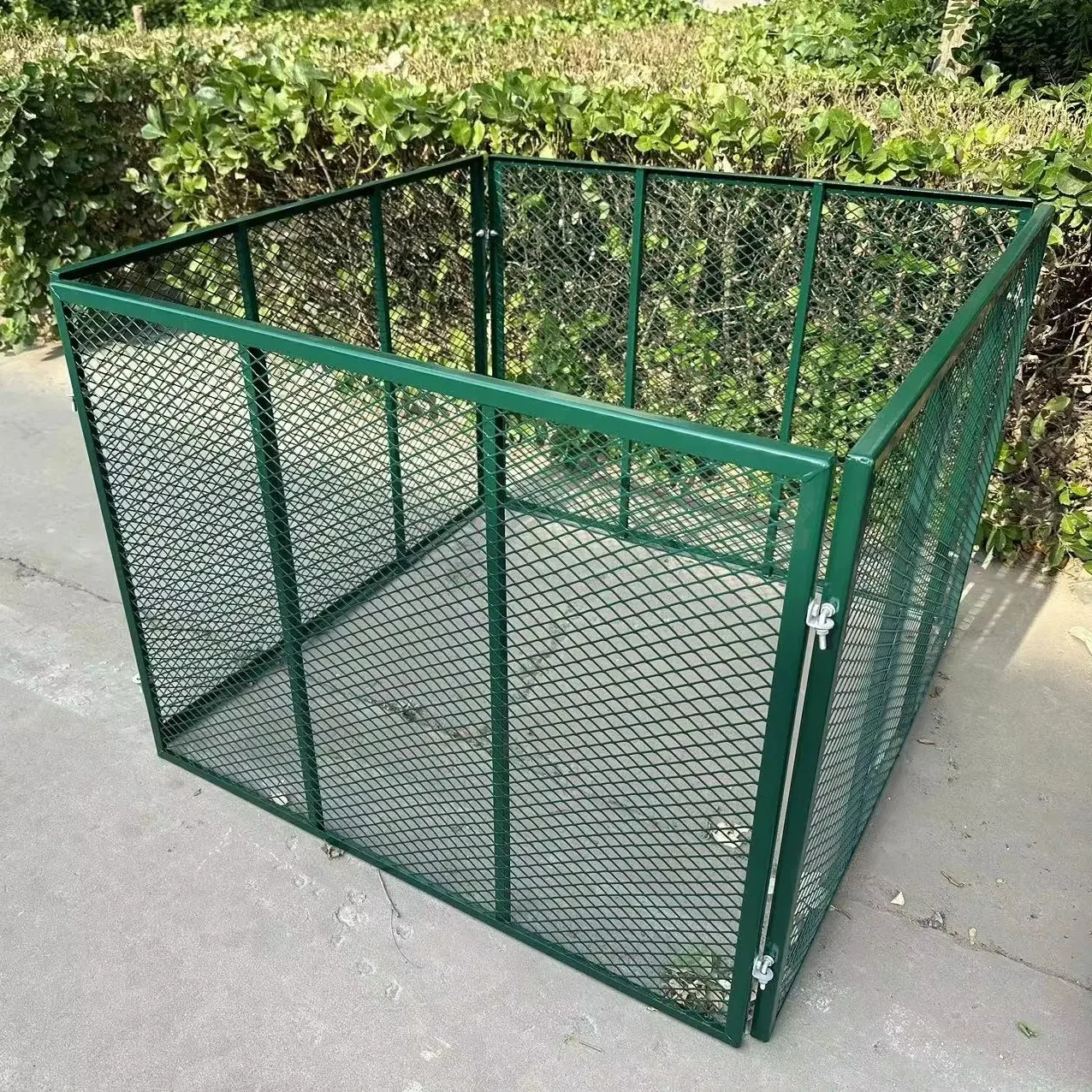
Product Comparison Table: Galvanized vs. Powder-Coated Steel
| Feature | Hot-Dip Galvanized Steel | Powder-Coated Steel/Iron |
|---|---|---|
| Corrosion Resistance | Excellent (Barrier & Cathodic Protection), 10-15+ years service life. | Very Good (Barrier Protection), 5-10 years service life, dependent on coating quality. |
| Aesthetic Options | Metallic grey finish, can be painted (requires specific primers). | Wide range of colors (RAL system), matte, gloss, textured finishes. |
| Scratch/Abrasion Resistance | Good, zinc coating is relatively soft but provides sacrificial protection. | Excellent, very hard and chip-resistant surface. |
| Cost (Initial) | Moderate to High (due to zinc cost and process). | Moderate (variable based on finish complexity). |
| Environmental Impact | Recyclable, long lifespan reduces waste. | Powder recovery systems minimize waste, typically VOC-free. |
This comparison helps B2B buyers weigh the trade-offs between ultimate corrosion protection and aesthetic versatility, aligning the choice of circular plant supports with specific project demands and budget constraints.
Customized Solutions & Design Flexibility
Recognizing that no two horticultural projects are identical, we specialize in providing customized circular plant supports tailored to the unique specifications of our B2B clients. This design flexibility ensures optimal performance and aesthetic integration, moving beyond standard off-the-shelf solutions.
Tailored Design Options:
- Dimensions: Custom heights, diameters, and segment lengths for `half circle plant supports` or `half moon plant supports` to perfectly match specific plant species or grow-out requirements. This is crucial for supporting mature specimens or rapidly growing crops.
- Material & Finish: Selection from various grades of galvanized steel, powder-coated iron, or even stainless steel, with a choice of thousands of RAL colors for powder coatings. This allows for seamless integration into specific landscape designs or branding requirements.
- Structural Adaptations: Development of bespoke `plant cages and supports` designs, including reinforced sections for heavy loads, unique anchoring mechanisms for challenging soil conditions, or modular interconnectivity for expandable systems.
- Functional Enhancements: Integration of features like adjustable rings, trellising elements, or specialized points for drip irrigation lines, turning a simple support into a multi-functional `garden plant support stake`.
- Volume Production: Our manufacturing capabilities are geared for efficient, high-volume production of custom orders, ensuring consistent quality and timely delivery for large-scale projects, without compromising on bespoke specifications.
Our engineering team collaborates closely with clients, from initial concept and CAD design to prototyping and final production. This iterative process ensures that every customized circular plant support solution is not only technically sound but also economically viable and perfectly aligned with the client's operational objectives. For example, a specialized botanical garden might require supports that are invisible from a certain distance, necessitating a precise color match and slender profile, while a commercial orchard might prioritize maximum load-bearing capacity and robust ground anchoring.
Trust & Reliability: Ensuring Compliance
In the B2B sector, trust and reliability are built on a foundation of Expertise, Experience, Authoritativeness, and Trustworthiness (). We ensure these pillars are consistently met across our products and services for circular plant supports.
Authoritativeness & Expertise:
- Certifications: Our manufacturing processes adhere to international standards such as ISO 9001:2015 for Quality Management Systems. Materials used for `iron plant supports` comply with ASTM, DIN, and JIS standards. Our coatings undergo rigorous testing to meet or exceed industry benchmarks for corrosion and UV resistance.
- Industry Experience: With over two decades of experience in metal fabrication and horticultural solutions, our team possesses deep expertise in designing and producing durable circular plant supports for diverse applications.
- Client Partnerships: We have established long-term relationships with leading commercial nurseries, landscape architects, and municipal park departments globally, reflecting our proven track record and reliability.
- Testing & Data: All products are subjected to comprehensive internal and third-party testing, including load-bearing capacity, salt spray, and accelerated weathering, with data available upon request to validate performance claims.
Trustworthiness & Customer Support:
- Warranty Commitment: We offer a comprehensive 5-year warranty on all structural components and coating integrity for our circular plant supports under normal operating conditions, underscoring our confidence in product durability.
- Lead Time & Fulfillment: Standard orders typically have a lead time of 3-4 weeks from order confirmation to shipment, with expedited options available for urgent projects. Our robust supply chain and production capacity ensure consistent fulfillment for bulk orders.
- Dedicated Customer Support: Our technical support team is available from 8:00 AM to 5:00 PM (GMT+8) Monday to Friday, via phone and email, to assist with product selection, installation guidance, and any post-purchase inquiries. We are committed to providing prompt and effective solutions.
- Sustainable Practices: We prioritize environmentally responsible manufacturing, including waste reduction, energy efficiency, and the use of recyclable materials, contributing to our clients' sustainability goals.
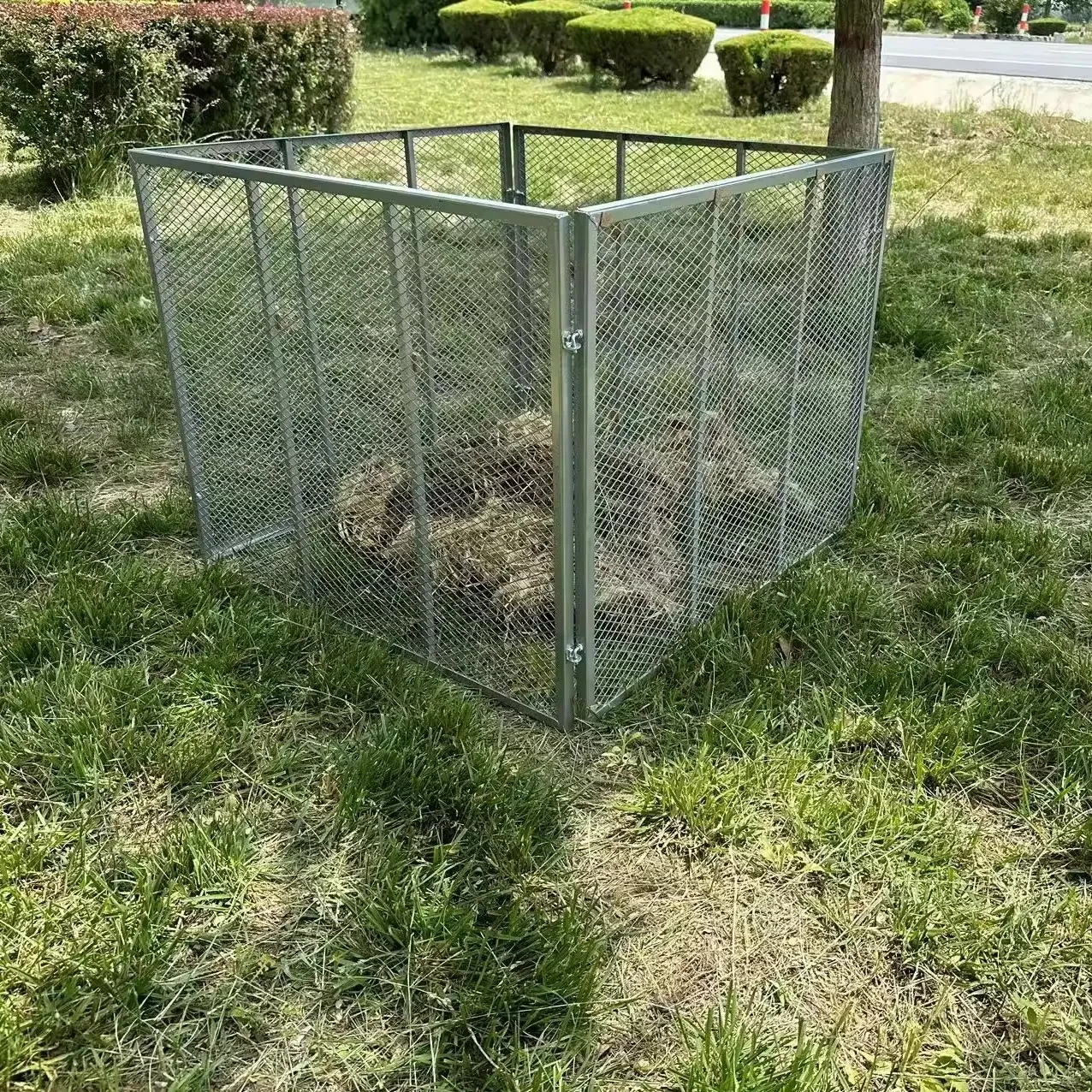
This holistic approach to quality, transparency, and service ensures that B2B clients can confidently invest in our circular plant supports, knowing they are acquiring reliable, high-performance solutions backed by a reputable industry leader.
Frequently Asked Questions (FAQ)
Q1: What is the typical lifespan of your circular plant supports?
A1: Our hot-dip galvanized steel supports typically last 10-15 years, while high-quality powder-coated iron supports can last 5-10 years, depending on environmental conditions and maintenance. Both significantly outperform untreated alternatives.
Q2: Can I get circular plant supports in custom sizes or colors?
A2: Yes, absolutely. We specialize in customized solutions. We can produce supports in specific heights, diameters, and a wide range of RAL colors to match your project's unique requirements. This applies to `half circle plant supports`, `half moon plant supports`, and full circular designs.
Q3: Are your `iron plant supports` suitable for all weather conditions?
A3: Our `iron plant supports` are treated with advanced corrosion-resistant coatings (galvanization or powder coating), making them highly durable in various weather conditions, including rain, snow, and UV exposure. They are designed for extensive outdoor use in commercial settings.
Q4: What is the minimum order quantity (MOQ) for B2B orders?
A4: Our MOQ varies depending on the specific product and level of customization. Please contact our sales team with your project details, and we will provide you with tailored MOQ information and pricing.
Q5: How do your `plant cages and supports` contribute to plant health?
A5: Our `plant cages and supports` prevent plants from flopping over, ensuring stems remain upright. This promotes better air circulation, reduces fungal diseases, maximizes light exposure for photosynthesis, and keeps fruits/flowers off the ground, resulting in healthier, higher-quality plants and increased yields.
Conclusion
The strategic integration of high-quality circular plant supports is no longer a mere option but a fundamental requirement for efficient and sustainable B2B horticultural operations. From enhancing plant vitality and maximizing yields to ensuring long-term aesthetic appeal in public and commercial landscapes, these engineered solutions provide tangible benefits. Our commitment to advanced manufacturing processes, superior material science, and comprehensive client support positions us as a trusted partner for your plant support needs.
By providing durable, customizable, and expertly crafted `garden plant support stakes` and `flower supports plant stakes`, we empower growers, landscape architects, and municipal authorities to achieve their objectives with confidence. The investment in robust support systems translates directly into improved plant health, reduced operational costs, and ultimately, greater success in any horticultural endeavor. Partner with us to elevate the performance and longevity of your botanical installations.
References
- ASTM International. (n.d.). _ASTM B117 - Standard Practice for Operating Salt Spray (Fog) Apparatus_. Retrieved from www.astm.org
- International Organization for Standardization. (n.d.). _ISO 9001 - Quality management systems - Requirements_. Retrieved from www.iso.org
- American National Standards Institute. (n.d.). _ANSI Standards_. Retrieved from www.ansi.org
- National Association of Landscape Professionals. (n.d.). _Best Practices in Commercial Landscaping_. Retrieved from www.landscapeprofessionals.org
- Horticultural Research Institute. (n.d.). _Research & Resources_. Retrieved from www.hriresearch.org
-
Durable PVC Coated Wire Mesh for Sale | Factory Direct PricesNewsAug.28,2025
-
Coated Chicken Wire for Sale - Durable & Rust-Resistant PVC MeshNewsAug.27,2025
-
Stylish Wooden Dog Crates For Sale - Furniture-Quality & SecureNewsAug.26,2025
-
Steel Fence Posts for Sale - Durable & Affordable OptionsNewsAug.21,2025
-
Durable Ornate Garden Gates: Steel Single/Double Wrought IronNewsAug.19,2025
